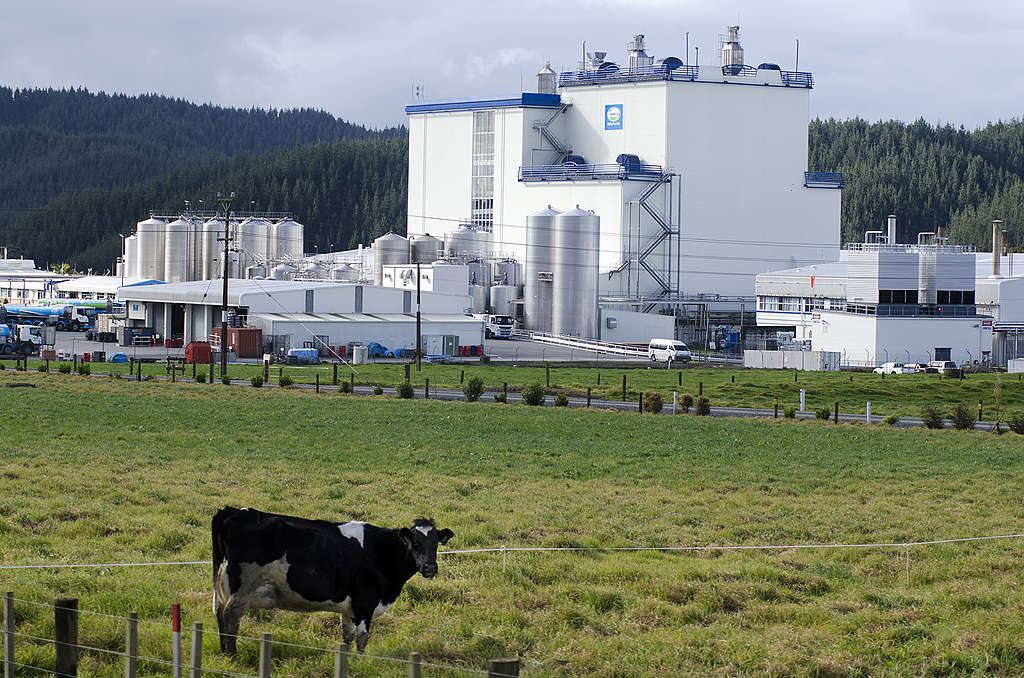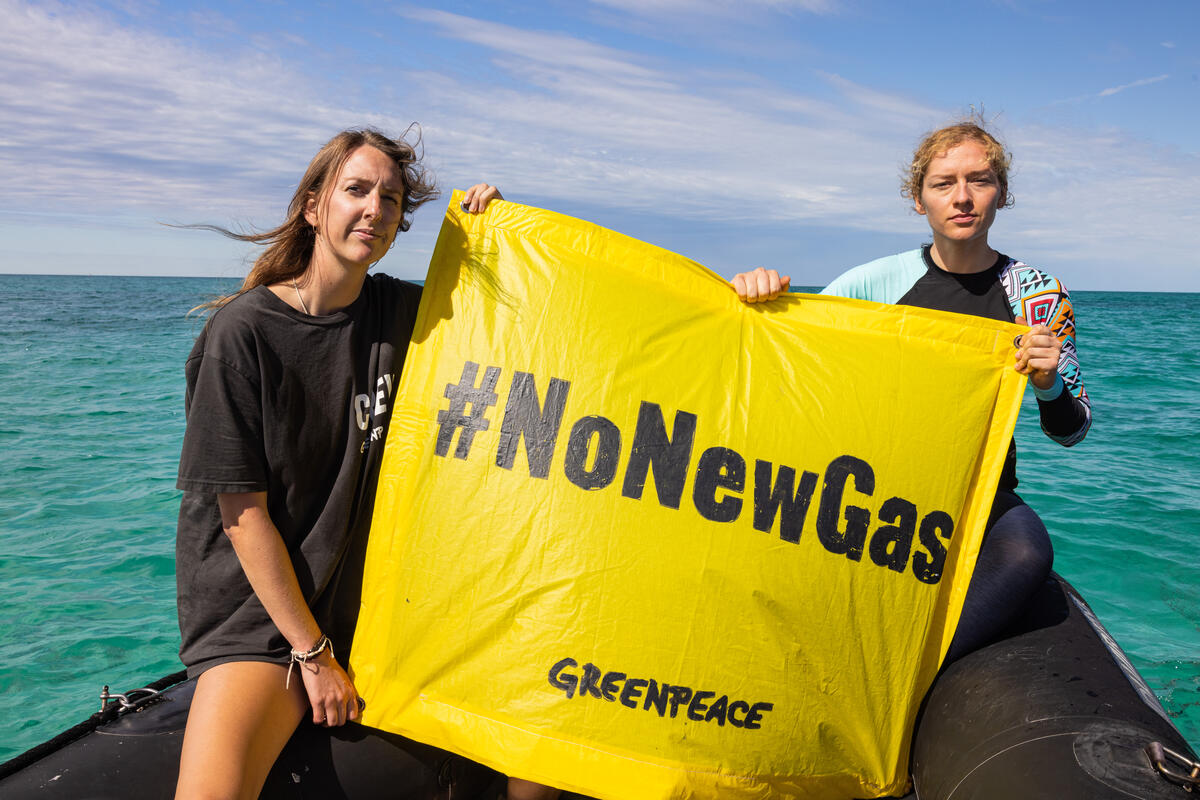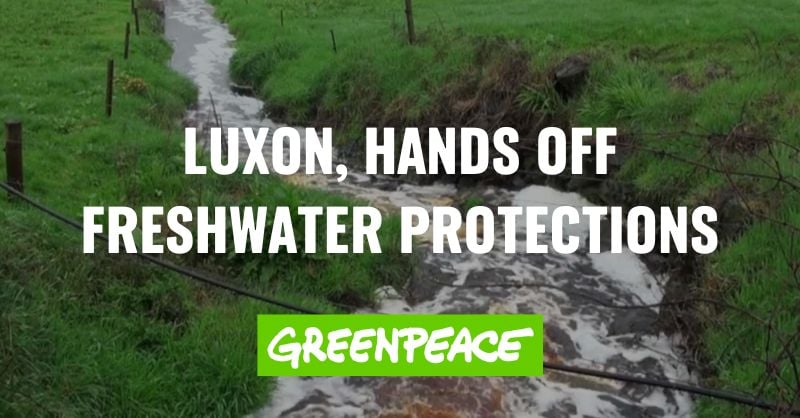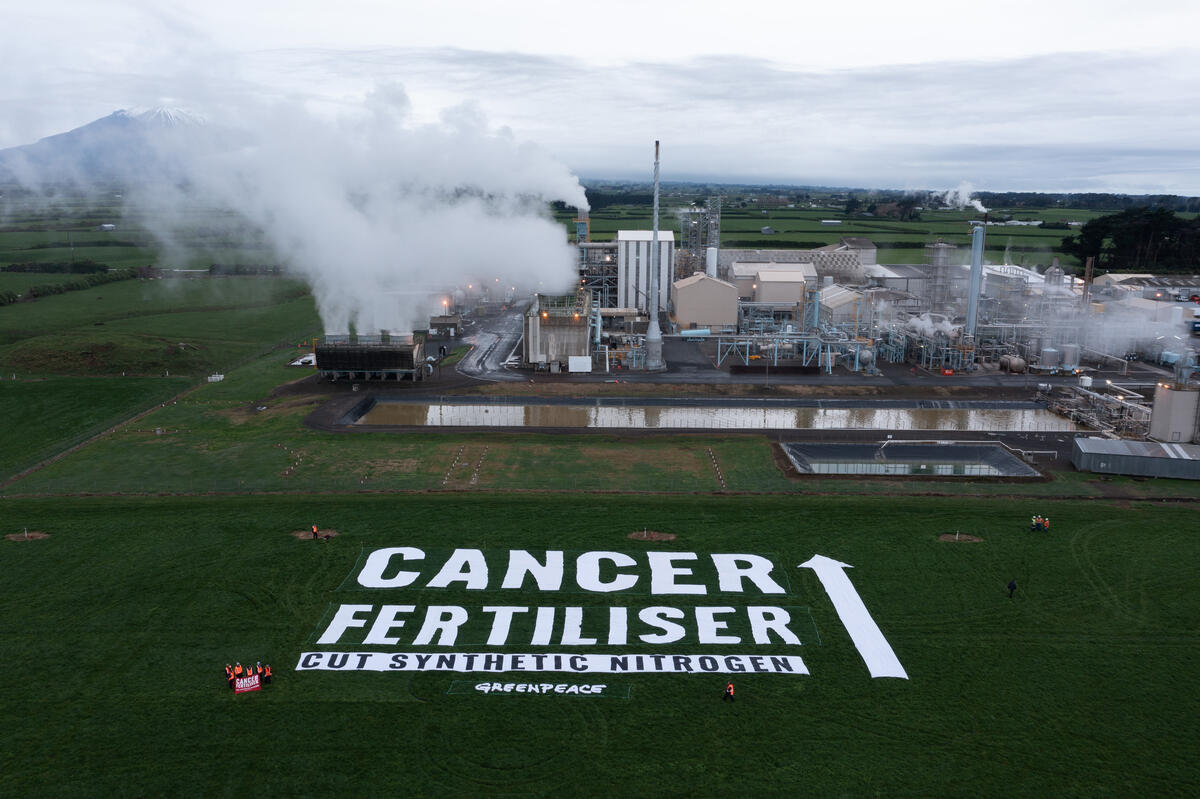National, ACT and New Zealand First are negotiating the shape of the new Government as I write. Sadly, the parties are strongly aligned. They all seek to strip back the protection of freshwater, drinking water, soil and the climate.
It will mean the work of the opposition parties, the Greens, Te Pāti Māori and Labour, will be more important. And it will also mean that resistance from Greenpeace and our supporters is critical.
The 100 day plan
The National Party has already announced its post-election 100-day plan. It promises to undo much of the important progress made over the last six years. That’s progress that didn’t go far enough but it did set a path for further improvements. It was a start to salvaging the environmental damage of the dairy industry.
On the new Government’s hit-list in its first 100 days are:
- Freshwater protection. Te Mana o te Wai puts the health of water first – the new Government wants to remove this priority.
- Intensive winter grazing (mud farming). This sees cows crammed into small plots that quickly turn to mud with nowhere dry for cows to lie and rest. The new Government wants to loosen these rules.
- Emissions pricing. Instead of agricultural emissions pricing, National wants to bring in Genetic Engineering. This is potentially dangerous for the environment and NZ’s reputation.
- Drinking water standards for small rural community services. National wants to weaken already loose standards. This increases the risk of bowel cancer from nitrate contamination.
- Live cattle export by sea. National wants to resume the live animal trade by sea. This ships hundreds of thousands of cows, thousands of kms. It sends the poor cows to countries where they will live and die in grim conditions below NZ standards.
How did we get here?
The dairy industry in New Zealand was established as the farm of the British Empire. Colonisation paved the way for land theft and forest clearance. It led to a powerful overlap between dairy interests and the state. Many countries overseas are petro-states because of the links between oil and government. But New Zealand is an agri-state, more specifically, a dairy-state.
The National Party was the farmer’s party. And ag-industry lobby group Federated Farmers was the National Party in gumboots. 2023 saw the election of 20 MPs with farming backgrounds. Many of them are former Federated Farmers executives. That includes the immediate past president – Andrew Hoggard who was number four on the ACT Party list. The new government overlaps with Federated Farmers, who have swapped their gumboots for suits.
The parties forming the new government eagerly accepted dairy industry policy recommendations in the lead up to the election. But it’s an agenda that’s hostile to the environment. It will make worse the pollution of rivers and lakes, drinking water contamination, and greenhouse gas emissions. It is even more cruel to cows and calves.
The pollution of fresh and drinking water
98% of New Zealand’s rivers and lakes are already polluted. Up to 800,000 rural New Zealanders are potentially at risk of bowel cancer from elevated nitrate contamination in their drinking water.
And New Zealand has among the highest greenhouse gas emissions per capita in the OECD. Fonterra is the ninth biggest dairy company in the world. But it has the third highest methane emissions.
Climate greenwash
Last week (9 November), Fonterra announced its ‘Climate Roadmap’. It’s just greenwashing. The company proposes to reduce emissions ‘intensity’. That means they want to become more efficient, rather than reducing emissions. They say they’ll to do this through:
- Unproven silver bullet technofixes like methane inhibitors;
- Creative accounting – wiping emissions from historic forest clearance off their balance sheets;
- Claiming carbon credits from grass and scattered trees. This doesn’t meet Climate Change Commission standards; and
- Using a 2018 baseline when dairy emissions were among their highest.
Fonterra’s ‘Roadmap’ would lead us to a climate change dead-end. It is designed to satisfy Fonterra’s global customers like Nestlé. But it won’t reduce emissions.
Fonterra’s plans are non-binding and unspecific. It could lead to more milk production and emissions, not less. It will make pollution of New Zealand’s freshwater lakes and rivers, and rural people’s drinking water, worse.
A report from the NZX Climate Insights team last week showed that Fonterra produces 35% of NZ’s greenhouse gases. We need real action on industrial dairy greenhouse gas emissions, not hot air. That means fewer cows, and a phase out of synthetic nitrogen fertiliser.
We’re running out of roadway. Rearranging the deck chairs on the sinking Titanic doesn’t cut it if we are to have the stable and safe climate, rivers that are safe to swim in, and water that’s safe to drink, that we all deserve.
Thriving and healthy nature is incompatible with the huge dairy herd. It’s inconsistent with weaker rules around destructive intensive winter grazing. Changing water quality rules under ‘Te Mana o te Wai’ is environmentally irresponsible.
Fonterra’s attempts to greenwash its global customers like Nestlé, doesn’t fool us here in Greenpeace. The dairy giant needs to transition to farming practices that work with instead of against nature. It must support a transition to diverse crop production, without fossil-fuel fertilisers like synthetic nitrogen.
What next for the destructive dairy industry?
The new Government wants to govern in the interests of its dairy industry mates. Not in the interests of nature and all New Zealanders.
It also sells good farmers short. Those good farmers refuse to use synthetic nitrogen fertiliser. They reject mud farming for its environmental destruction and cruelty. Good, ecological farmers already work with, not against nature. They practise organic, regenerative, and plant-based systems.
The new Government’s 100-day plan undermines New Zealand’s clean green reputation. Local and global customers expect and deserve better. The plan is a step back to the dark ages, when politicians and their cronies cashed in on short term profit at the expense of the environment.
That makes our work more important than ever. Already most New Zealand rivers have been destroyed by industrial dairy. They are no longer safe to swim in. You can’t even let your dog touch the water these days – it’s so polluted your dog might die. And safe drinking water is a basic human right.
Climate change poses more risks to growing good food than regulation ever does.
Protect, defend, resist, challenge
We won’t give up defending nature against those in Government who put industrial polluters first. But we need your help.
Join us, in calling on the Government, and those who support the destructive dairy industry, to reduce the herd, to phase out synthetic nitrogen fertiliser and imported feed, and to bring agriculture fully into the Emissions Trading Scheme.
Join us in fighting for a prosperous, healthy future, not a retreat into a dystopian dark age where only industrial polluters thrive.

Join our call on the Government to go further than the Climate Commission’s inadequate recommendations and cut climate pollution from NZ’s biggest polluter: industrial dairying.
Take Action


